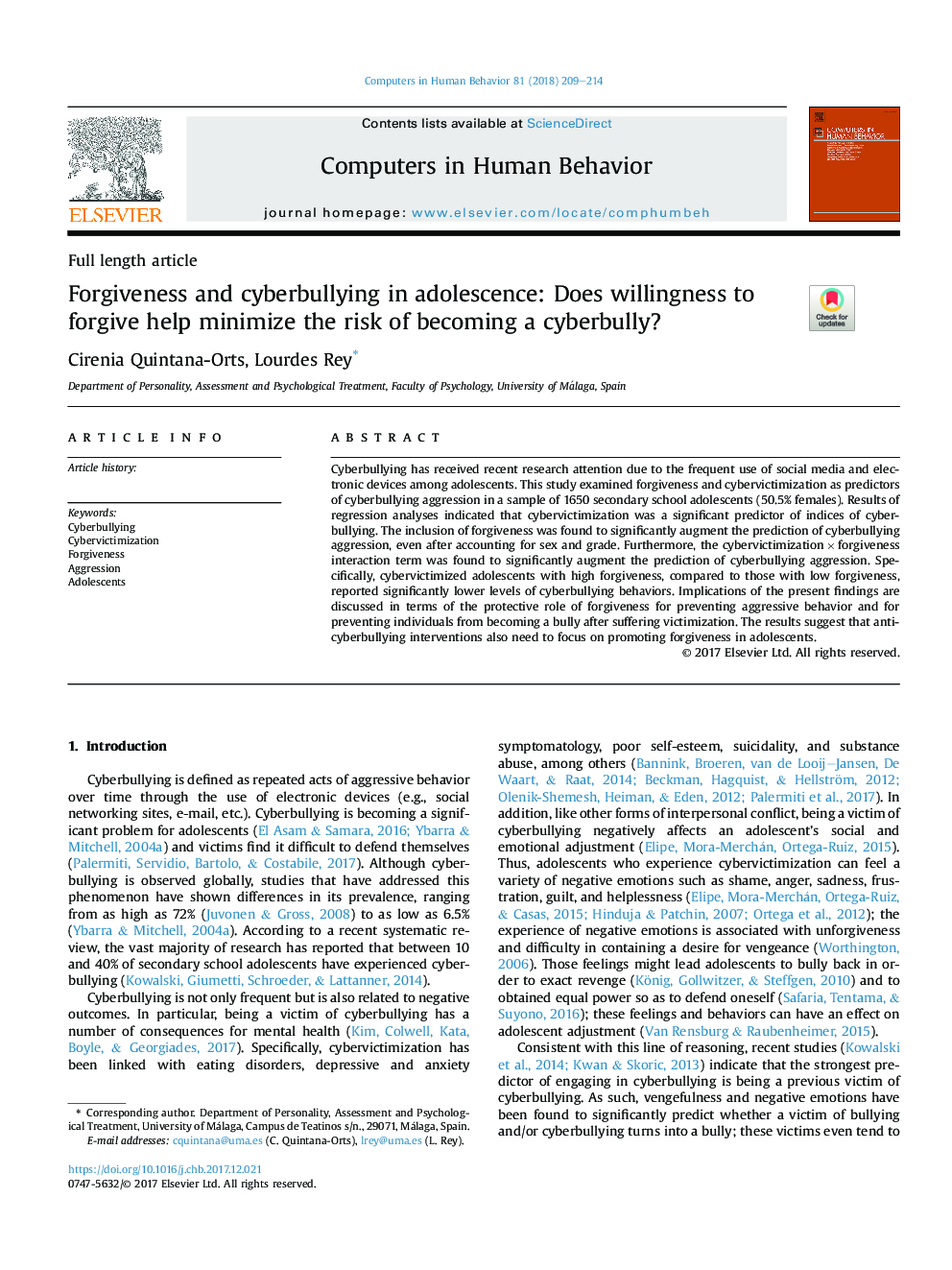| Article ID | Journal | Published Year | Pages | File Type |
|---|---|---|---|---|
| 6836232 | Computers in Human Behavior | 2018 | 6 Pages |
Abstract
Cyberbullying has received recent research attention due to the frequent use of social media and electronic devices among adolescents. This study examined forgiveness and cybervictimization as predictors of cyberbullying aggression in a sample of 1650 secondary school adolescents (50.5% females). Results of regression analyses indicated that cybervictimization was a significant predictor of indices of cyberbullying. The inclusion of forgiveness was found to significantly augment the prediction of cyberbullying aggression, even after accounting for sex and grade. Furthermore, the cybervictimizationâ¯Ãâ¯forgiveness interaction term was found to significantly augment the prediction of cyberbullying aggression. Specifically, cybervictimized adolescents with high forgiveness, compared to those with low forgiveness, reported significantly lower levels of cyberbullying behaviors. Implications of the present findings are discussed in terms of the protective role of forgiveness for preventing aggressive behavior and for preventing individuals from becoming a bully after suffering victimization. The results suggest that anti-cyberbullying interventions also need to focus on promoting forgiveness in adolescents.
Related Topics
Physical Sciences and Engineering
Computer Science
Computer Science Applications
Authors
Cirenia Quintana-Orts, Lourdes Rey,
